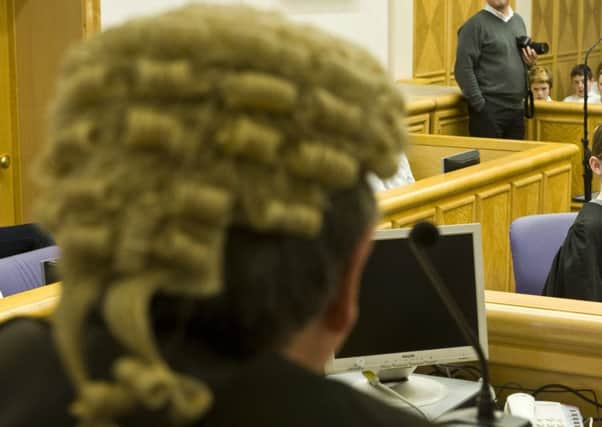Why Scotland needs a dose of American justice – Karyn McCluskey


The successes we’ve had dealing with violence in Scotland have been down to a cast of thousands: teachers, health professionals, social workers, police, community leaders. And all because when I asked for help, for often difficult tasks and always above and beyond their already busy jobs, they said yes. That’s what it takes to make change happen; lifting your eyes from what’s immediately in front of you, looking beyond the horizon and asking: “What else could this look like?” It’s not easy to do, especially when you’re busy (and who isn’t?) and when you know that it means doing more with less – and no incentive other than the possibility that you might help change the world.
With that in mind, this week Scotland will host two judges from the US: Ginger Lerner-Wren and Victoria Pratt. Both have used their position to do something different and transformed their courts into places that focus on people, not what they might have done.
Advertisement
Hide AdAdvertisement
Hide AdBroward County Judge Lerner-Wren pioneered the first mental health court in the US in 1997. Born out of a damning 1994 Grand Jury report, which painted a horrifying picture of prisons overflowing with people with mental health issues receiving little or no treatment, its aim was for one judge to be able to offer all the help needed to those passing through the court. Based on the theory of therapeutic jurisprudence and the principles of procedural justice, the court process was designed to be experienced as fair and positive, regardless of the outcome, and that people must feel their voices were heard. Regard for human dignity for everyone is its lifeblood.
Judge Pratt presides over Newark Community Solutions, the community court programme. Once known as the ‘Green Monster’, she has transformed her court into a place where trust and respect for everyone is paramount. She looks defendants in the eye, not down on them and uses plain language to speak with them, not at them. More than 40 per cent of her defendants have mental health issues, up to 90 per cent have substance-abuse problems and many have both. Judge Pratt looks for the most helpful and effective options for those in front of her and does what she can to avoid giving them most damaging sentence – incarceration.
The simple idea that the justice system works better when it treats people fairly and doesn’t humiliate them seems obvious to me but may be an anathema to others – but the plain fact is that it’s effective, it works, and it’s the right thing to do. And if you find something that ticks all those boxes then you’d better do it, because those sorts of solutions are few and far between.
While they’re here, these two brilliant judges will be visiting courts and prisons, and speaking with civil servants, lawyers, and anyone who will listen. That is something we sorely need to do and are often lacking – we need to actively listen to those who have made the journey before us. We have some spectacular sheriffs in Scotland, doing innovative, ground-breaking work but we need to build on, support and shout about it.
Advertisement
Hide AdAdvertisement
Hide AdSometimes for us professionals, it’s hard to hear that we could be doing our jobs better or to admit that someone else is excelling where we are treading water. We all feel like we are trying our best and working as hard as we can. But we need to have the humility to recognise our weaknesses – and know when to ask for help.
Karyn McCluskey is chief executive of Community Justice Scotland
